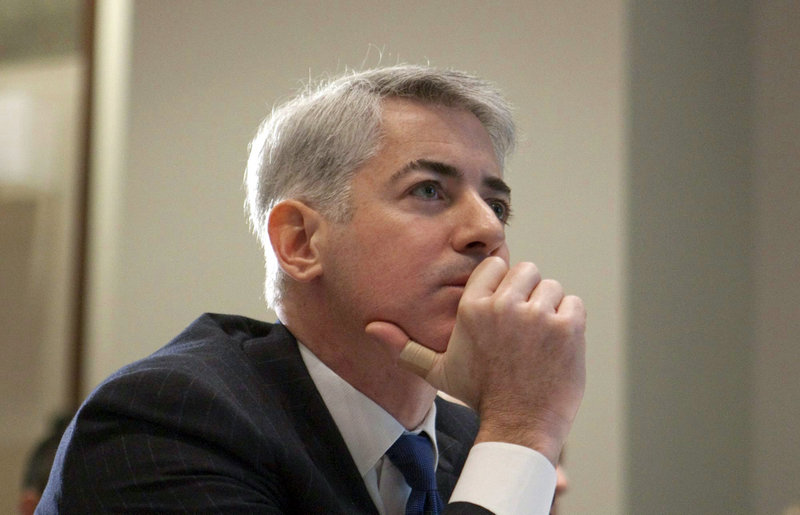PLANO, Texas — The boardroom drama may be over, but J.C. Penney is still grappling with an uncertain future.
William Ackman has resigned from J.C. Penney’s board as part of a deal to resolve an unusually public battle between the activist investor and the struggling department store operator.
Ackman’s departure provides some short-term relief from a distraction for Penney while it tries to fix its ailing business and as the crucial back-to-school selling season heats up.
But investors pushed the company’s stock price lower Tuesday as they worry about Penney’s long-term struggle to turn its business around.
The share decline also reflected worries that Ackman might sell shares. Ackman’s Pershing Square Capital Management is Penney’s biggest stockholder with a 17.7 percent stake. CNBC quoted Ackman as saying he had no immediate plans to sell.
“(Penney) got the thorn out of their inside, but they’re both real losers here,” said Charles Elson, head of the John L. Weinberg Center for Corporate Governance at the University of Delaware. It’s bad news for Penney because if Ackman sells his stock, it will hurt the stock price. If he doesn’t, he will still exert a big influence on the company, albeit from the outside.
As for Ackman, the activist investor no longer has an inside view into the company. And if he sells near current prices, he will lose a lot of money.
Ackman went public last week with statements saying he’d lost confidence in Penney’s board and that Chairman Thomas Engibous should be replaced. Ackman and the retailer’s board also were bickering over how quickly the company should replace CEO Mike Ullman.
On Tuesday, Penney named Ronald Tysoe as a director to fill Ackman’s seat. Tysoe is former vice chairman of Federated Department Stores Inc., which is now Macy’s Inc. Penney will name an additional new director in the near future.
Ackman said in a statement that the moves were “the most constructive way forward” for the Plano, Texas, company and all parties involved.
The departure doesn’t do much to reverse Penney’s declining business, which is trying to lure back shoppers turned off by a reinvention plan formulated by a former CEO backed by Ackman.
“This was just a sideshow,” said Brian Sozzi, chief equities strategist for Belus Capital Advisors. “The fundamental issues of the company are nowhere near fixed.”
Penney’s board also reiterated its support for CEO Ullman, who returned to that job in April. Ullman had previously served as Penney CEO from 2004 to 2011.
Ullman had replaced Ron Johnson, who was ousted as CEO after 17 months because his radical makeover led to massive losses and sales declines.
Ackman joined Penney’s board in February 2011 and was the one who pushed the board to hire Johnson, a mastermind of Apple Inc.’s successful stores. The hope was Johnson could inject new energy into a tired company.
Johnson’s reinvention plan started Feb. 1, 2012, and was an instant disaster. Sales plummeted, and so did investor confidence.
Penney amassed nearly a billion dollars in losses and its revenue dropped 25 percent for the fiscal year that ended Feb. 2 in the first year of the failed transformation strategy. Ackman remained Johnson’s supporter until weeks before he was fired.
Since coming back to Penney in April, Ullman has worked to stabilize the business by bringing back basic merchandise and the more frequent sales eliminated by Johnson in a bid to attract younger, hipper customers. Many analysts believe traffic is improving but have seen no evidence of a turnaround yet.
Send questions/comments to the editors.



Success. Please wait for the page to reload. If the page does not reload within 5 seconds, please refresh the page.
Enter your email and password to access comments.
Hi, to comment on stories you must . This profile is in addition to your subscription and website login.
Already have a commenting profile? .
Invalid username/password.
Please check your email to confirm and complete your registration.
Only subscribers are eligible to post comments. Please subscribe or login first for digital access. Here’s why.
Use the form below to reset your password. When you've submitted your account email, we will send an email with a reset code.